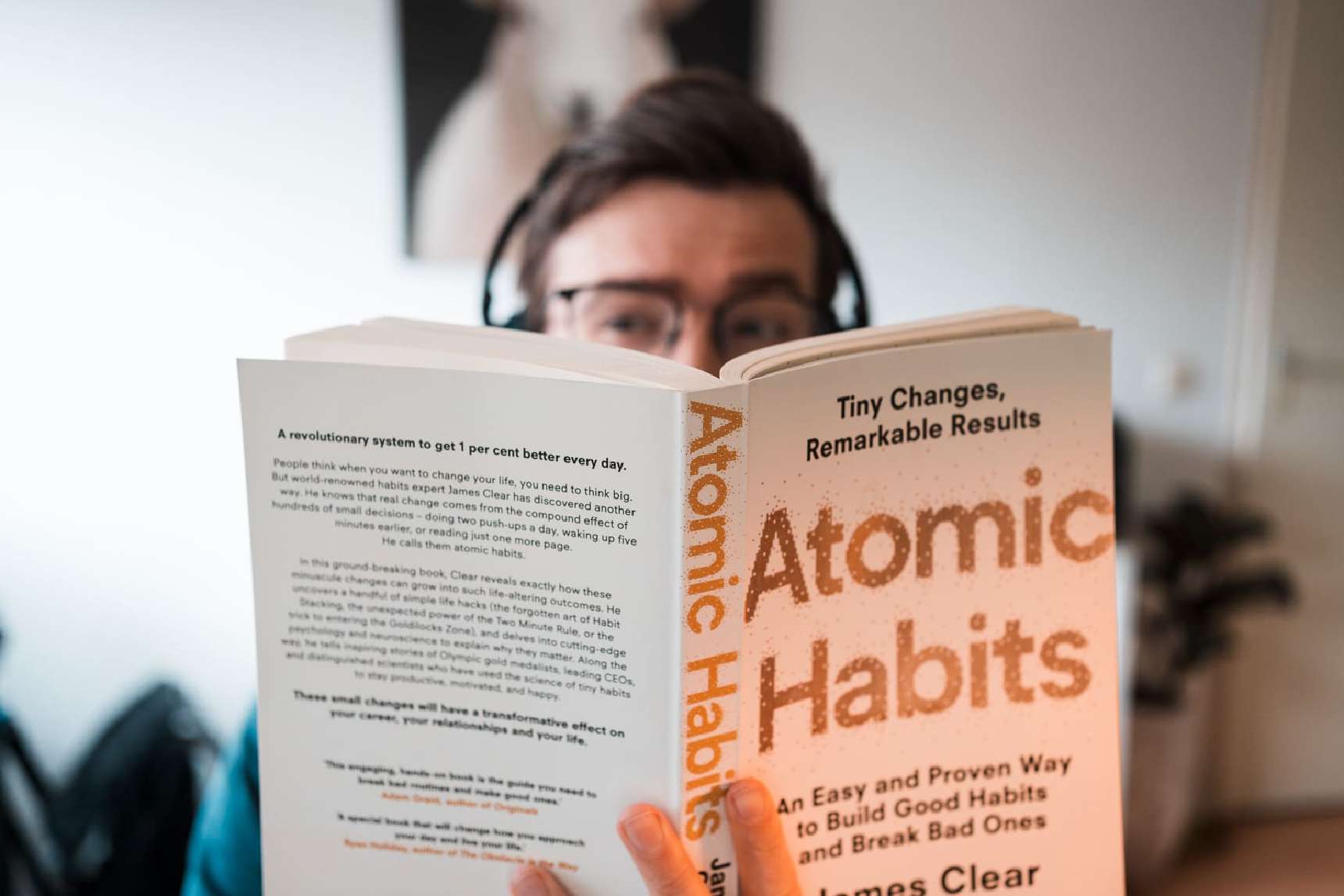How habits can help a team grow in a calm way

“As a team we should improve our Typescript skills.”
“Why haven’t we shown the outside world about our work lately?”
“We really should organise a meetup more often.”
“Our Youtube videos are good, why is it not possible to publish them more often?”
These are statements that I hear more often. You want to get better at something, or do something more often. But when we are busy with stuff it looks like there is no time. In many cases, you can even become disappointed in yourself for not doing these things.
But this can be done differently. By setting up a simple system with clear rules, it is possible to create good habits as a team and still learn Typescript, or organise meetups more often. Below I explain how we do this at Studio Wolf.
Why does a habit work?
As a team you can often say that you want to improve at Typescript, for example. But that does not mean that you actually get better at it. Maybe you will learn a bit, but actually getting better at it is not ensured.
What does work is to take small steps. You could choose to spend an hour every week with Typescript. This means that after a year you have already spent 52 hours improving your skills. That’s probably 51 hours more than you would just talk about it.
Another thing is not to make a habit difficult. To stick with the Typescript example, first get started with tutorials that you can actually follow. If you dive straight into the deep end, you become overwhelmed by the possibilities and might end up doing nothing.
Sounds good, but how do you determine those habits? And how do you ensure that you actually start doing them, because that is the biggest challenge.
Determine
We have now defined some habits ourselves at Studio Wolf. After some brainstorming we discovered a big pitfall of ours: staying in our own cocoon and not entering the outside world enough. I think it is mainly a trap of people who are creative, you become absorbed in your work, and you forget that you have to do something for it if you want other people to use it.
Determine Your Focus — Before setting habits, you need a clear focus. What would you like to work on as a team or company? Make sure you have a maximum of 1 or 2 in the end, we don’t want to choose a lot, because that can results into nothing happening. Examples of focus are: ‘getting out in the world’, ‘getting better in development’, ‘becoming a closer team’.
Choose habits — Now that you have established a focus, start setting up habits. The trick is to start with one habit and build up to more later. When I started habits I determined several, so that after a short period of enthusiasm you get demotivated again.
A habit is short and describes an action, here are a few of us: ‘Share something with our network’, ‘Create an article / video / podcast to be published’, ‘Contact someone to talk about maps’. And as you can see, these clearly fall into our focus.
Create a system — As a last step, you need a system that allows you to perform the habits. In the beginning I used my calendar to put in my habits, but that didn’t work for me. The best way is to print out a table of your habits and place it clearly where you can check off your habit every time.
Since the two of us are working on the same habits, we keep a table in Notion in which we arrange our entire sprint planning. We have a template we copy for every sprint that already contains our habits. It takes us two weeks to do a sprint, so we also have two weeks to perform our habits. Some habits take more time than others.

Tips & Rules of the Game
There are a number of tips and guidelines that can help you get started with your habits.
- Too many habits often don’t work. Start small, preferably with one. Get used to it for a few weeks and see if you manage to hold onto the habit. In many cases you can get really excited about the whole system to improve yourself, but then if there is one setback, it all seems like too much work and you quit. So keep it small and simple.
- Skipping once is not a problem, but just skip it once. We are all human and some days life is a bit harder. But if you skip more than once, the chances are much higher that you will stop altogether.
- A small habit works better than a large habit. In a team context, the habit could be slightly larger, because you can motivate each other. Still, in most cases it is better to write for 10 minutes every day than a chapter a week. Running for 2 hours a day is also less effective than 10 minutes a day when you’re getting started.
- Provide a clear trigger of your habit. The day before the habit, make a note with your next action of the habit on it and stick it onto your monitor. If you want to learn to play guitar, put your guitar in front of you. Get your sportswear ready the night before, or if it’s really difficult, go sleep in it. Or make sure that your writing app is already open on your computer and your WiFi off, so that you can start writing immediately. Make your habit easy.
- Provide an up-to-date system. Check off what you have done. If your habit has been changed, process this in your system.
- And finally, an important tip. If you choose a habit that you don’t really want for yourself, think very carefully about whether you really want to go through with it. These are the habits that are the most difficult to hold on to. Be honest with yourself.
Wrap up
So choose a focus, determine your habit(s) and build a system. That’s the core of starting habits. The tricky part is to keep it up, but the tips can help.
You can also have bad habits as a team. For example unhealthy lunches, looking at competitors too much, experiencing too much distraction, etc. You can use the same tricks from this article to get rid of your bad habits.
Oh, and one last piece of advice. Only the bad thought about a thought can be bad. So don’t reject yourself if you can’t keep up with your habits. Adjust your habits or system, or come back to it later.
Read further
Do you want to know a lot more about Habits? Then read James Clear’s Atomic habits.
